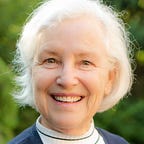Updated — How Do Highly Gifted Adults Show Developmental Potential? Part 1
Gifted Adults in Their 40s and 50s — Environmental, Familial, and Personal Factors
I re-edited this post when I discovered I had indeed finished it. It became a full chapter in Morality, Ethics, and Gifted Minds, edited by Don Ambrose and Tracy Cross, by Springer Publishing.[1] I have now included a full PDF link to my chapter in the book at the end of each of the three posts by this name, Part 1, Part 2, and Part 3. I’ve embellished this first part and the writing is a more friendly form from the aforementioned book.
My chapter is about developmental potential vis-à-vis Kohlberg,[2] Maslow,[3] and Dabrowski.[4] I probably forgot about this chapter because — since then — I got well into the weeds myself on developing my own inner growth and potential. Who had time for more remembering publications at a time like that? I was in my early 60s. (I think age references help us to see how far along on the inner growth journey one is likely to be).
This post — and the next two or three on this topic — also came from my finally finished on the last day of 1998 doctoral dissertation study, Environmental, Familial, and Personal Factors That Affect the Self-Actualization of Highly gifted Adults: Case Studies (41 of them).[5] The subjects are all Baby Boomers born between about…
